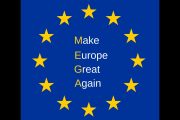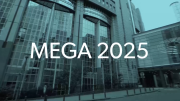
The European Union announced Tuesday that it would be closing external borders in order to halt the spread of the coronavirus pandemic. Leaders of the bloc of nations announced that the border closings will be temporary and expect the travel restrictions to last at least thirty days.
Thus far, the virus has infected some 226,000 people worldwide and killed more than 9,000. Europe, in particular Italy, has replaced China as the new global epicenter of the virus.
Officially, the move is an opinion coming from the European Commission and not an order, although all 27 nations have agreed to institute the border closings. Exceptions include Ireland, which has announced that it will never close its border with Northern Ireland and the United Kingdom, which left the bloc earlier this year but remains subject to EU rules through the end of this year.
Some non-EU members such as Iceland, Liechtenstein, Norway, and Switzerland have joined the EU in closing their borders.
“It’s up to [the individual nations] now to implement it,” said European Commission president Ursula von der Leyen. “They said they would immediately do that.”
The restrictions are meant to halt any non-essential travel into the EU. Citizens of the EU will still be allowed to travel to different countries within the bloc but only “essential” non-citizens will be allowed entry.
The restrictions do not apply to medicines, medical staff, or the movement of goods between countries.
“The flow of goods has to be swift, we need these goods for the functioning of the internal market,” said von der Leyen. “But we have also to make sure that the commuters can go back and forth where they live, or where they work.”
European Council President Charles Michel offered a message of unity amid the chaotic situation.
“The message we want to give you is that we are rallying together…. We are faced with a serious crisis, an exceptional one in terms of magnitude and nature,” Michel said. “We want to move ahead together. We want to meet the same objectives together. We want to push back this threat. We want to slow down this virus.”
Prior to the announcement, 15 of the 26 member states in the Schengen Zone — the area in continental Europe where no passport is required when travelling between nations — have already closed their borders. It is hoped that by closing all EU external borders that those restrictions can be lifted, although von der Leyen acknowledged, “It will take quite a while until we reach the lifting of the internal borders.”
The situation — with some countries closing borders and some not — has caused disruption in much-needed supplies getting to their destinations. “It is absolutely crucial that we unblock the situation” von der Leyen said.
As border closings ramped up on Wednesday, there were reports of massive traffic jams at various border crossings, including one 37-mile backup on Germany’s A4 highway, one of the countries’ busiest and most important routes.
The roads are filled with panicked travelers, attempting to get home, along with trucks struggling to get needed supplies to their destinations.
“We are all desperate, cold and sleepless here for the third day,” said Janina Stukiene, who was stuck on Lithuania’s border with her husband and son. “We just want to go home.”
A mere seven days ago, the EU strongly condemned U.S. President Donald Trump for barring travel to the United States from Europe. At the time, Michel and von der Leyen said in a statement, “The coronavirus is a global crisis, not limited to any continent, and requires cooperation rather than unilateral action.”
How the tables have turned. Just a week after bashing Trump for instituting a travel ban, they issued their own.
Image: ThomasVogel via iStock / Getty Images Plus
James Murphy is a freelance journalist who writes on a variety of subjects, with a primary focus on the ongoing anthropogenic climate-change hoax and cultural issues. He can be reached at jcmurphyABR@mail.com




